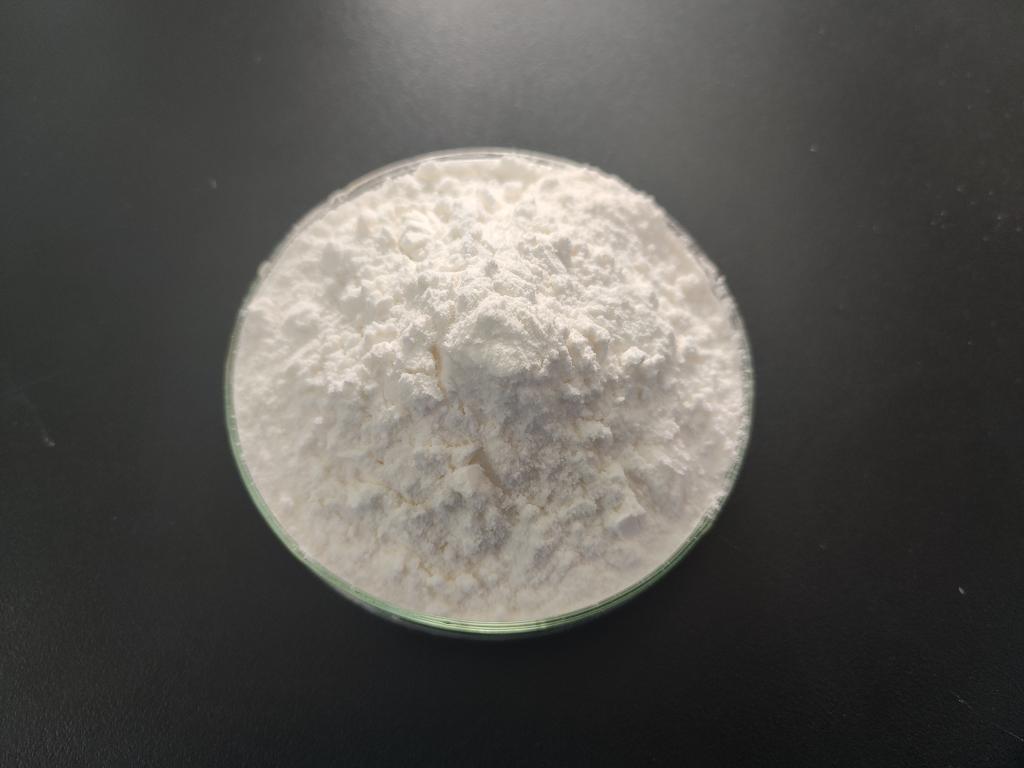Tel:+8618231198596

News
 CONTACT
CONTACT
 CONTACT
CONTACT
- Linkman:Linda Yao
- Tel: +8618231198596
- Email:linda.yao@dcpharma.cn
- Linkman:CHARLES.WANG
- Department:Overseas
- Tel: 0086 0311-85537378 0086 0311-85539701
News
The safety and efficacy of ε-Polylysine hydrochloride have been extensively studied and documented.
TIME:2024-03-28
Understanding ε-Polylysine Hydrochloride
ε-Polylysine is a homo-polymer of L-lysine, a basic amino acid found in proteins. It is produced by certain strains of bacteria through fermentation processes. ε-PL consists of multiple lysine residues linked together by peptide bonds, forming a linear chain polymer. The hydrochloride salt of ε-Polylysine, ε-PL hydrochloride, is the most commonly used form due to its stability and solubility in water.
Safety Assessment of ε-Polylysine Hydrochloride
The safety of ε-Polylysine hydrochloride has been extensively evaluated through various toxicological studies, including acute toxicity, subacute toxicity, genotoxicity, and chronic toxicity assessments. These studies have consistently demonstrated that ε-PL hydrochloride is safe for consumption at recommended levels.
Acute Toxicity Studies: Acute toxicity studies have shown that ε-Polylysine hydrochloride has a low acute toxicity profile, with no observed adverse effects at high doses administered orally or dermally. The LD50 (lethal dose, 50%) values determined in animal studies indicate that ε-PL hydrochloride has a wide safety margin.
Subacute Toxicity Studies: Subacute toxicity studies involve administering ε-Polylysine hydrochloride to animals over a prolonged period to assess its potential toxic effects. These studies have consistently shown that ε-PL hydrochloride is well-tolerated at various dose levels, with no significant adverse effects on general health, organ function, or histopathology.
Genotoxicity Studies: Genotoxicity studies evaluate the potential of a substance to cause damage to DNA or induce mutations. Multiple genotoxicity assays, including Ames tests, chromosomal aberration tests, and micronucleus assays, have confirmed that ε-Polylysine hydrochloride does not exhibit genotoxic activity.
Chronic Toxicity Studies: Chronic toxicity studies assess the long-term effects of continuous exposure to a substance. Although fewer chronic toxicity studies have been conducted on ε-PL hydrochloride compared to acute and subacute studies, available data indicate that prolonged consumption of ε-Polylysine hydrochloride does not result in significant adverse effects.
Overall, the comprehensive safety assessment of ε-Polylysine hydrochloride supports its use as a food additive and antimicrobial agent in various applications.
Efficacy of ε-Polylysine Hydrochloride as an Antimicrobial Agent
ε-Polylysine hydrochloride exhibits potent antimicrobial activity against a broad spectrum of microorganisms, including bacteria, yeasts, and molds. Its mode of action involves disrupting microbial cell membranes, leading to cell lysis and death. The efficacy of ε-PL hydrochloride as an antimicrobial agent has been extensively studied in vitro and in real-world applications.
In vitro Studies: In vitro studies have demonstrated the antimicrobial activity of ε-Polylysine hydrochloride against various foodborne pathogens, including Escherichia coli, Salmonella spp., Listeria monocytogenes, and Staphylococcus aureus. Minimum inhibitory concentration (MIC) values determined in these studies indicate the effectiveness of ε-PL hydrochloride in inhibiting microbial growth at low concentrations.
Real-world Applications: ε-Polylysine hydrochloride has been successfully used as a preservative in a wide range of food and beverage products, including dairy products, meat and poultry, seafood, beverages, sauces, and condiments. Its ability to inhibit microbial growth and extend the shelf life of perishable foods makes it a valuable addition to food preservation strategies.
Safety in Food Applications
The safety of ε-Polylysine hydrochloride in food applications has been confirmed by regulatory authorities worldwide. The Joint FAO/WHO Expert Committee on Food Additives (JECFA) and the U.S. Food and Drug Administration (FDA) have evaluated ε-PL hydrochloride and assigned it a "Generally Recognized as Safe" (GRAS) status for use as a food additive. The European Food Safety Authority (EFSA) has also approved ε-Polylysine hydrochloride as a food additive with no specified maximum daily intake limit.
Conclusion
ε-Polylysine hydrochloride is a safe and effective antimicrobial compound with broad-spectrum activity against bacteria, yeasts, and molds. Extensive toxicological studies have confirmed its safety for consumption at recommended levels, while in vitro and real-world studies have demonstrated its efficacy as a preservative in food and beverage products. With regulatory approval from authorities worldwide, ε-Polylysine hydrochloride continues to play a valuable role in ensuring food safety and quality across various industries. Further research and development efforts are likely to uncover additional applications and benefits of this versatile antimicrobial agent.
- Tel:+8618231198596
- Whatsapp:18231198596
- Chat With Skype







